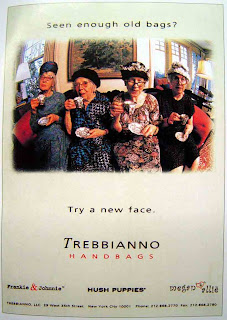
"Garden writing is often very tame, a real waste when you think how opinionated, inquisitive, irreverent and lascivious gardeners themselves tend to be. Nobody talks much about the muscular limbs, dark, swollen buds, strip-tease trees and unholy beauty that have made us all slaves of the Goddess Flora." ~Ketzel Levine's talkingplants.com
"I cultivate my garden, and my garden cultivates me." ~Robert Brault
This is my first spring in my new home. I found these Japanese quince flowering at the west side of the house yesterday and had to cut two branches to bring inside. The painting is by my daughter Sophia.
In the front garden, the roses and honeysuckle have begun sending their leaves out and the daffodils, hyacinths and tulips are in bloom. A few days ago, I had 3 yards of dark fragrant compost delivered and unloaded by a handsome, cheerful young man named Jesus. All in all, it seemed a good way to greet the spring.

The beautiful blue violet of these grape hyacinths is my favorite flower color. It's so ethereal.
I spent the winter months wrestling with masses of ivy roots and branches. That's still not completely over (perhaps it will never be done, like so many things in this life) but I did make a significant change in the garden beds there.
My daughter planted three fruit trees in the back gardens--a Gravenstein apple, a Tilton apricot and a Hungarian cherry.
Come along with me as I change the subject a little. I love this photograph I found of an old building surrounded by and crowned with green. It has the patina of oldness. Oldness is reassuring, especially in the example of old gardens, forests and cities, even ruins.
 When I was younger, gardens were simply not of any interest. It was not until I began to study healing and Buddhism in my early 30s that the ecstatic beauty of gardens dawned on me.
When I was younger, gardens were simply not of any interest. It was not until I began to study healing and Buddhism in my early 30s that the ecstatic beauty of gardens dawned on me.I was writing articles then for the New Age Journal. The opportunity popped up to write a feature on master gardener Alan Chadwick by visiting his gardens in Round Valley, California.
Chadwick was a marvelous human being--dramatic, original, passionate and very attuned to the energies of nature and the garden. He was 72 when I met him. He was elegant--tall, lean and suntanned, full of energy-- with a personality that was both mesmerizing and cantankerous.
It was good to see someone that old--40 years older than me at the time--living so vividly. I still hold him as a powerful model of positive aging. Here's a photo of Chadwick when he was in his 60s.

What I remember most about my approach to those gardens Chadwick created was the palpable resonance of their energies. It was as if everything was singing, trembling and shimmering together--the flowers, vegetables and herbs, the trees and vines were an intricate composition of color, form and voices.
Hmm, I mused to myself, this is what a great garden is like-- uplifting and healing, a display of the innate holiness of nature.
If you are at all interested in either gardening or elders who are making a difference, I recommend the book Growing, Older by Joan Dye Gussow. Gussow also wrote This Organic Life: Confessions of a Suburban Homesteader. At 81, she is considered the pioneer of the locovore movement. Her writing is humorous and inspiring. She's a terrific example of how life-enhancing it is to have a great passion.
"Hope is the lesson Nature keeps teaching me. She keeps producing. She recovers. She creates beauty out of loss. She forgives us our impatience and frustration and insistence that things turn out the way we planned. They don't. They turn out the way she planned. We need to be willing to sacrifice control to learn adaptation."
Joan Gussow, from Growing, Older: A Chronicle of Death, Life, and VegetablesWell, I have to return to working on developing a video script and setting shots for a film clip on A New Wrinkle, our musical revue on aging. It's always astounding how much work it takes to create a well-crafted, brief piece of writing. Another form of weeding, pruning and transplanting. And it looks as if the sun is coming out and giving us a respite here between rainstorms.







